
Most social histories have tended to portray 1970 as a fairly grim year for the British Isles. In the ‘mainstream’ of British life, it was the year in which Harold Wilson’s boom years ground to a halt and Ted Heath’s tory government took back the reigns of power in preparation for decade characterized by strikes, shortages, the collapse of national industry, rising unemployment and general entropy. In the underground meanwhile, 1970 was the year of dead rock stars, bad drugs, despondency and the slow death of the ‘60s dream, in which addictions deepened and acid disappeared, in which free festivals started to become disaster areas, bland post-Cream AOR trudge-rock became the norm and drab wool n’ corduroy replaced the paisley and chiffon of yore. And the weather sucked too. It was a bummer, in short.

Not that such generalisations should be taken at face value, of course – I’m sure there were still loads of people who had a blast in 1970 – kids growing up, falling in love, having adventures, as they are apt to do, and grown ups doing the same, whilst savvy cats like The Edgar Broughton Band, Mick Farren and The Pink Fairies just blitzed through the whole period on a cocktail of booze, feedback and righteous indignation, bumping straight into punk on their way out. But nonetheless, it is this overall impression of 1970 as a colossal downer that concerns us here, as we examine ‘Permissive’, a confoundingly bleak attempt at a sexploitation flick that plays out more like an extended funeral for all the dreams of the preceding decade.

Long discussed in hushed tones in the spaces where rare DVD-R traders meet underground music fans, largely thanks the presence of incidental music from acid folk enigmas Comus (British music geeks of a certain age reach breathlessly for their tape recorders), ‘Permissive’ can now be revealed as a film that is sullen, sordid and about as erotic as a beer-soaked hiking sock, but that is nevertheless a strangely fascinating cultural quagmire, making a perfectly obtuse addition to the BFI’s Flipside series.
With only a dufflecoat to her name, young Suzy (Maggie Stride) steps off the train in London – no back story, no hope and dreams, no nothing. Just think, a few years earlier she could have had a
Smashing Time. But she’s too late; that ship has sailed, never to return. This is the London where club-footed pigeons hobble around looking for a place to die, where the only things swinging are wrecking balls and the autumnal fog never lifts. Somewhere up the road, Presuming Ed is snoozing in the bath listening to The White Album as Danny contemplates the rat in the oven.

Suzy’s only contact in the Smoke is her friend Fiona (the excellently named Gay Singleton), who has found a niche for herself as groupie-in-chief to Forever More, a real life folk-rock combo who put out a couple of records on RCA in the early ‘70s. “He’s a bit hairy”, observes Suzy, regarding Fiona’s main squeeze Lee with understandable distaste. “Hey, would you like to meet the group?”, her friend responds, and Suzy’s fate is sealed.
In the movie as presumably in reality, Forever More are a bore – a bunch of surly hairfarmers who hammer out their lethargic, over-complex odes to pastoral idealism in dank basement clubs before retreating to safety of the nearest soul-crushingly anonymous, new-build Travelodge to ‘party’ with a few bottles of Newcastle Brown, a few joints and some weak-willed and sad-eyed runaway girls.

“It’s a pretty happening scene, huh?”, somebody says with a faint edge of desperation, and at that moment you feel like stopping the film in order to step in and say – look man, I’ve seen some ‘happening scenes’ in my time, and this REALLY, REALLY is NOT one of them, ok?
Usually, it is part of the deal of rock n’ roll movies, and groupie/tour straggler narratives like this in particular, that they will present the corner of the music world they happen to be portraying in exciting, escapist terms – as a wild, dazzling demi-monde whose denizens laugh in the face of plebian reality. That’s essentially what we wanna see, and from ‘Summer Holiday’ through to ‘Beyond The Valley Of The Dolls’, that’s what we’re used to getting. Just look at the way Cameron Crowe took this same grim era of stale corporate rock and routine statutory rape and managed to turn it into a bucolic wonderland of sun-dappled dreams in ‘Almost Famous’ a few years back. Face it, if we wanted reality, ‘C***sucker Blues’ would be playing down the multiplex instead, and ‘Permissive’ right beside it.

Even in the murk of the British exploitation industry, it’s hard to believe that there was time when making a sex film featuring a bunch of guys who look like Uriah Heap and some pasty-faced, malnourished girls in faded Grace Slick get-up seemed like a good idea. More likely I think, ‘Permissive’s backers (70s Britsploitation powerhouse Tigon) were counting on a more frivolous, feel-good sex/rock/youth culture flick. Director Lindsay Shonteff, still reelin’ from the sights and sounds of the ‘60s, thought he could cut some corners and get some good shit by filming reality… but unfortunately, reality had already f-ed up.

‘Permissive’ is at least pretty well made for such a quick, low budget affair, with some interesting directorial decisions, rich and detailed cinematography (a brief woodland sequence looks like the cover of the first ‘Sabbath album) and excellent London location shooting, not to mention some great music from the aforementioned Comus, jamming on some early versions of tunes from their classic ‘First Utterance’ LP.
The film’s chief innovation is the use of strikingly unusual time-fractured cut-up editing, in which characters seem to flash forward to their death/fate/future circumstances as soon as they’re introduced. Possibly these experiments could have been inspired by Nic Roeg’s recent work on ‘Performance’ and ‘Walkabout’, or perhaps they’re just the result of the director and editor trying to liven things up in the editing room. But either way, it works extremely well, imbuing ‘Permissive’ with a sense of disjointed artiness that the banal storyline and lifeless performances would otherwise have lacked, and helping cement the fateful, funereal atmosphere that seems to spread slowly across every aspect of the film, inadvertently allowing ‘Permissive’ entry into the strange international pantheon of off-beat sex films (mainly Japanese, it must be said) which continue to demand our interest today largely thanks to the way they inexplicably reject conventional eroticism in favour of crafting cinema that is jagged, unsettling, nihilistic and horrid.

Not that ‘Permissive’ is really jagged, nihilistic or horrid. In typically reserved English style, it’s more just… deeply MIFFED. Fed up. Washed out. A vengeful cinematic hangover. Despite the film’s title, none of the characters’ sexual exploits really bother attempting to be shocking or unconventional. So they shag each other a lot - well, why not, what else is there to do? Musicians and groupies alike seem like rats caught in the same trap, wondering forever around a maze of box-like hotel corridors, occasionally bumping into each other to share warmth and dissipate the boredom. Through most of the film, I don’t think anyone even smiles, let alone gives any indication of enjoying their partners’ company. Allan Gorrie, who went on to lead the Average White Band (never has a group been so aptly named), is presented to us as Forever More’s main man/prime catch, and even he looks like Whisperin’ Bob Harris’s uglier brother and seems to pay more attention to his cups of milky tea than he does to his lovelorn maidens.
About the biggest excitement in the world of Forever More comes when they cram themselves into the back of a Transit van for a few days playing gigs ‘up North’, and get to see some fields zooming by at the side of the motorway. And to think, these are the guys lucky enough to be signed to a major label and getting regular work! God I’m glad I wasn’t ‘on the rock scene’ in 1970. Watching ‘Permissive’, I found myself almost counting down the hours waiting for Ziggy Stardust and Roxy Music’s first album to come and save us all.

Anyway, it’s at one of the band’s unsavoury Travelodge hoedowns that Suzy bumps into a pretentious, meditating hippie kid about her own age who calls himself ‘Pogo’. In perhaps the film’s most heart-rending moment, Pogo rhetorically asks Suzy what she’s looking for in life, and she tearfully replies that she just wants something to eat. Pogo says he knows where they can get some grub, but first they have to go to “where it’s at”. After a freezing walk across town, “where it’s at” turns out to be a luggage locker in Kings Cross station where Pogo’s stashed a stale crust of bread and a lump of cheese. Clearly Pogo is a colossal twat.

So timid and starved of affection is Suzy though that rather than punching him in the face there and then, she accepts this irritating weirdo’s hospitality, and elects to sleep rough on the street with him rather than returning to the groupie treadmill, busking in the subway and sharing a sleeping bag under the stars on a derelict bombsite. Despite Pogo’s unrelenting twattishness, this is probably the film’s most compelling and upbeat segment, with lots of beautifully desolate period location work and an almost touching chemistry between he two youngsters.
Hey, things still aren’t going great for this girl, we think, but at least she’s got a friend, even if he is a twat. That’s until Pogo is unceremoniously hit by a car anyway, the camera mobidly zooming in on his mangled body. Christ. With a broken heart and seemingly no other options, Suzy heads straight back to Forever More and proceeds to absent-mindedly sleep her way through band’s hierarchy, cruelly usurping whatever passes for ‘power’ in groupie-world from her former best friend, with tragic results.

Beginning with an overcast sky and ending with a lurid bathtub suicide, ‘Permissive’ is about as miserable as it gets, veering closer to the ultimate downer of Lukas Moodyson’s ‘Lilya 4Ever’ than to the kind of dubious entertainment a contemporary audience was presumably expecting; the film’s only instance of full frontal nudity is a corpse.
Whilst not a great film by any stretch of the imagination, ‘Permissive’ is certainly a unique curiosity, and on some level I suppose we should thank Shonteff for daring to rub the raincoat brigade’s noses in the dead dreams and blighted hopes of the young people they’d presumably paid their ticket money to get all hot and bothered by. And if ‘Permissive’ can be seen to present an accurate picture of youth culture in Britain circa 1970, it’s a wonder any of us made it through alive. Please, someone, bring on the glitter before it’s too late…
 Most social histories have tended to portray 1970 as a fairly grim year for the British Isles. In the ‘mainstream’ of British life, it was the year in which Harold Wilson’s boom years ground to a halt and Ted Heath’s tory government took back the reigns of power in preparation for decade characterized by strikes, shortages, the collapse of national industry, rising unemployment and general entropy. In the underground meanwhile, 1970 was the year of dead rock stars, bad drugs, despondency and the slow death of the ‘60s dream, in which addictions deepened and acid disappeared, in which free festivals started to become disaster areas, bland post-Cream AOR trudge-rock became the norm and drab wool n’ corduroy replaced the paisley and chiffon of yore. And the weather sucked too. It was a bummer, in short.
Most social histories have tended to portray 1970 as a fairly grim year for the British Isles. In the ‘mainstream’ of British life, it was the year in which Harold Wilson’s boom years ground to a halt and Ted Heath’s tory government took back the reigns of power in preparation for decade characterized by strikes, shortages, the collapse of national industry, rising unemployment and general entropy. In the underground meanwhile, 1970 was the year of dead rock stars, bad drugs, despondency and the slow death of the ‘60s dream, in which addictions deepened and acid disappeared, in which free festivals started to become disaster areas, bland post-Cream AOR trudge-rock became the norm and drab wool n’ corduroy replaced the paisley and chiffon of yore. And the weather sucked too. It was a bummer, in short.
 Not that such generalisations should be taken at face value, of course – I’m sure there were still loads of people who had a blast in 1970 – kids growing up, falling in love, having adventures, as they are apt to do, and grown ups doing the same, whilst savvy cats like The Edgar Broughton Band, Mick Farren and The Pink Fairies just blitzed through the whole period on a cocktail of booze, feedback and righteous indignation, bumping straight into punk on their way out. But nonetheless, it is this overall impression of 1970 as a colossal downer that concerns us here, as we examine ‘Permissive’, a confoundingly bleak attempt at a sexploitation flick that plays out more like an extended funeral for all the dreams of the preceding decade.
Not that such generalisations should be taken at face value, of course – I’m sure there were still loads of people who had a blast in 1970 – kids growing up, falling in love, having adventures, as they are apt to do, and grown ups doing the same, whilst savvy cats like The Edgar Broughton Band, Mick Farren and The Pink Fairies just blitzed through the whole period on a cocktail of booze, feedback and righteous indignation, bumping straight into punk on their way out. But nonetheless, it is this overall impression of 1970 as a colossal downer that concerns us here, as we examine ‘Permissive’, a confoundingly bleak attempt at a sexploitation flick that plays out more like an extended funeral for all the dreams of the preceding decade.
 Long discussed in hushed tones in the spaces where rare DVD-R traders meet underground music fans, largely thanks the presence of incidental music from acid folk enigmas Comus (British music geeks of a certain age reach breathlessly for their tape recorders), ‘Permissive’ can now be revealed as a film that is sullen, sordid and about as erotic as a beer-soaked hiking sock, but that is nevertheless a strangely fascinating cultural quagmire, making a perfectly obtuse addition to the BFI’s Flipside series.
With only a dufflecoat to her name, young Suzy (Maggie Stride) steps off the train in London – no back story, no hope and dreams, no nothing. Just think, a few years earlier she could have had a Smashing Time. But she’s too late; that ship has sailed, never to return. This is the London where club-footed pigeons hobble around looking for a place to die, where the only things swinging are wrecking balls and the autumnal fog never lifts. Somewhere up the road, Presuming Ed is snoozing in the bath listening to The White Album as Danny contemplates the rat in the oven.
Long discussed in hushed tones in the spaces where rare DVD-R traders meet underground music fans, largely thanks the presence of incidental music from acid folk enigmas Comus (British music geeks of a certain age reach breathlessly for their tape recorders), ‘Permissive’ can now be revealed as a film that is sullen, sordid and about as erotic as a beer-soaked hiking sock, but that is nevertheless a strangely fascinating cultural quagmire, making a perfectly obtuse addition to the BFI’s Flipside series.
With only a dufflecoat to her name, young Suzy (Maggie Stride) steps off the train in London – no back story, no hope and dreams, no nothing. Just think, a few years earlier she could have had a Smashing Time. But she’s too late; that ship has sailed, never to return. This is the London where club-footed pigeons hobble around looking for a place to die, where the only things swinging are wrecking balls and the autumnal fog never lifts. Somewhere up the road, Presuming Ed is snoozing in the bath listening to The White Album as Danny contemplates the rat in the oven.
 Suzy’s only contact in the Smoke is her friend Fiona (the excellently named Gay Singleton), who has found a niche for herself as groupie-in-chief to Forever More, a real life folk-rock combo who put out a couple of records on RCA in the early ‘70s. “He’s a bit hairy”, observes Suzy, regarding Fiona’s main squeeze Lee with understandable distaste. “Hey, would you like to meet the group?”, her friend responds, and Suzy’s fate is sealed.
In the movie as presumably in reality, Forever More are a bore – a bunch of surly hairfarmers who hammer out their lethargic, over-complex odes to pastoral idealism in dank basement clubs before retreating to safety of the nearest soul-crushingly anonymous, new-build Travelodge to ‘party’ with a few bottles of Newcastle Brown, a few joints and some weak-willed and sad-eyed runaway girls.
Suzy’s only contact in the Smoke is her friend Fiona (the excellently named Gay Singleton), who has found a niche for herself as groupie-in-chief to Forever More, a real life folk-rock combo who put out a couple of records on RCA in the early ‘70s. “He’s a bit hairy”, observes Suzy, regarding Fiona’s main squeeze Lee with understandable distaste. “Hey, would you like to meet the group?”, her friend responds, and Suzy’s fate is sealed.
In the movie as presumably in reality, Forever More are a bore – a bunch of surly hairfarmers who hammer out their lethargic, over-complex odes to pastoral idealism in dank basement clubs before retreating to safety of the nearest soul-crushingly anonymous, new-build Travelodge to ‘party’ with a few bottles of Newcastle Brown, a few joints and some weak-willed and sad-eyed runaway girls.
 “It’s a pretty happening scene, huh?”, somebody says with a faint edge of desperation, and at that moment you feel like stopping the film in order to step in and say – look man, I’ve seen some ‘happening scenes’ in my time, and this REALLY, REALLY is NOT one of them, ok?
Usually, it is part of the deal of rock n’ roll movies, and groupie/tour straggler narratives like this in particular, that they will present the corner of the music world they happen to be portraying in exciting, escapist terms – as a wild, dazzling demi-monde whose denizens laugh in the face of plebian reality. That’s essentially what we wanna see, and from ‘Summer Holiday’ through to ‘Beyond The Valley Of The Dolls’, that’s what we’re used to getting. Just look at the way Cameron Crowe took this same grim era of stale corporate rock and routine statutory rape and managed to turn it into a bucolic wonderland of sun-dappled dreams in ‘Almost Famous’ a few years back. Face it, if we wanted reality, ‘C***sucker Blues’ would be playing down the multiplex instead, and ‘Permissive’ right beside it.
“It’s a pretty happening scene, huh?”, somebody says with a faint edge of desperation, and at that moment you feel like stopping the film in order to step in and say – look man, I’ve seen some ‘happening scenes’ in my time, and this REALLY, REALLY is NOT one of them, ok?
Usually, it is part of the deal of rock n’ roll movies, and groupie/tour straggler narratives like this in particular, that they will present the corner of the music world they happen to be portraying in exciting, escapist terms – as a wild, dazzling demi-monde whose denizens laugh in the face of plebian reality. That’s essentially what we wanna see, and from ‘Summer Holiday’ through to ‘Beyond The Valley Of The Dolls’, that’s what we’re used to getting. Just look at the way Cameron Crowe took this same grim era of stale corporate rock and routine statutory rape and managed to turn it into a bucolic wonderland of sun-dappled dreams in ‘Almost Famous’ a few years back. Face it, if we wanted reality, ‘C***sucker Blues’ would be playing down the multiplex instead, and ‘Permissive’ right beside it.
 Even in the murk of the British exploitation industry, it’s hard to believe that there was time when making a sex film featuring a bunch of guys who look like Uriah Heap and some pasty-faced, malnourished girls in faded Grace Slick get-up seemed like a good idea. More likely I think, ‘Permissive’s backers (70s Britsploitation powerhouse Tigon) were counting on a more frivolous, feel-good sex/rock/youth culture flick. Director Lindsay Shonteff, still reelin’ from the sights and sounds of the ‘60s, thought he could cut some corners and get some good shit by filming reality… but unfortunately, reality had already f-ed up.
Even in the murk of the British exploitation industry, it’s hard to believe that there was time when making a sex film featuring a bunch of guys who look like Uriah Heap and some pasty-faced, malnourished girls in faded Grace Slick get-up seemed like a good idea. More likely I think, ‘Permissive’s backers (70s Britsploitation powerhouse Tigon) were counting on a more frivolous, feel-good sex/rock/youth culture flick. Director Lindsay Shonteff, still reelin’ from the sights and sounds of the ‘60s, thought he could cut some corners and get some good shit by filming reality… but unfortunately, reality had already f-ed up.
 ‘Permissive’ is at least pretty well made for such a quick, low budget affair, with some interesting directorial decisions, rich and detailed cinematography (a brief woodland sequence looks like the cover of the first ‘Sabbath album) and excellent London location shooting, not to mention some great music from the aforementioned Comus, jamming on some early versions of tunes from their classic ‘First Utterance’ LP.
The film’s chief innovation is the use of strikingly unusual time-fractured cut-up editing, in which characters seem to flash forward to their death/fate/future circumstances as soon as they’re introduced. Possibly these experiments could have been inspired by Nic Roeg’s recent work on ‘Performance’ and ‘Walkabout’, or perhaps they’re just the result of the director and editor trying to liven things up in the editing room. But either way, it works extremely well, imbuing ‘Permissive’ with a sense of disjointed artiness that the banal storyline and lifeless performances would otherwise have lacked, and helping cement the fateful, funereal atmosphere that seems to spread slowly across every aspect of the film, inadvertently allowing ‘Permissive’ entry into the strange international pantheon of off-beat sex films (mainly Japanese, it must be said) which continue to demand our interest today largely thanks to the way they inexplicably reject conventional eroticism in favour of crafting cinema that is jagged, unsettling, nihilistic and horrid.
‘Permissive’ is at least pretty well made for such a quick, low budget affair, with some interesting directorial decisions, rich and detailed cinematography (a brief woodland sequence looks like the cover of the first ‘Sabbath album) and excellent London location shooting, not to mention some great music from the aforementioned Comus, jamming on some early versions of tunes from their classic ‘First Utterance’ LP.
The film’s chief innovation is the use of strikingly unusual time-fractured cut-up editing, in which characters seem to flash forward to their death/fate/future circumstances as soon as they’re introduced. Possibly these experiments could have been inspired by Nic Roeg’s recent work on ‘Performance’ and ‘Walkabout’, or perhaps they’re just the result of the director and editor trying to liven things up in the editing room. But either way, it works extremely well, imbuing ‘Permissive’ with a sense of disjointed artiness that the banal storyline and lifeless performances would otherwise have lacked, and helping cement the fateful, funereal atmosphere that seems to spread slowly across every aspect of the film, inadvertently allowing ‘Permissive’ entry into the strange international pantheon of off-beat sex films (mainly Japanese, it must be said) which continue to demand our interest today largely thanks to the way they inexplicably reject conventional eroticism in favour of crafting cinema that is jagged, unsettling, nihilistic and horrid.
 Not that ‘Permissive’ is really jagged, nihilistic or horrid. In typically reserved English style, it’s more just… deeply MIFFED. Fed up. Washed out. A vengeful cinematic hangover. Despite the film’s title, none of the characters’ sexual exploits really bother attempting to be shocking or unconventional. So they shag each other a lot - well, why not, what else is there to do? Musicians and groupies alike seem like rats caught in the same trap, wondering forever around a maze of box-like hotel corridors, occasionally bumping into each other to share warmth and dissipate the boredom. Through most of the film, I don’t think anyone even smiles, let alone gives any indication of enjoying their partners’ company. Allan Gorrie, who went on to lead the Average White Band (never has a group been so aptly named), is presented to us as Forever More’s main man/prime catch, and even he looks like Whisperin’ Bob Harris’s uglier brother and seems to pay more attention to his cups of milky tea than he does to his lovelorn maidens.
About the biggest excitement in the world of Forever More comes when they cram themselves into the back of a Transit van for a few days playing gigs ‘up North’, and get to see some fields zooming by at the side of the motorway. And to think, these are the guys lucky enough to be signed to a major label and getting regular work! God I’m glad I wasn’t ‘on the rock scene’ in 1970. Watching ‘Permissive’, I found myself almost counting down the hours waiting for Ziggy Stardust and Roxy Music’s first album to come and save us all.
Not that ‘Permissive’ is really jagged, nihilistic or horrid. In typically reserved English style, it’s more just… deeply MIFFED. Fed up. Washed out. A vengeful cinematic hangover. Despite the film’s title, none of the characters’ sexual exploits really bother attempting to be shocking or unconventional. So they shag each other a lot - well, why not, what else is there to do? Musicians and groupies alike seem like rats caught in the same trap, wondering forever around a maze of box-like hotel corridors, occasionally bumping into each other to share warmth and dissipate the boredom. Through most of the film, I don’t think anyone even smiles, let alone gives any indication of enjoying their partners’ company. Allan Gorrie, who went on to lead the Average White Band (never has a group been so aptly named), is presented to us as Forever More’s main man/prime catch, and even he looks like Whisperin’ Bob Harris’s uglier brother and seems to pay more attention to his cups of milky tea than he does to his lovelorn maidens.
About the biggest excitement in the world of Forever More comes when they cram themselves into the back of a Transit van for a few days playing gigs ‘up North’, and get to see some fields zooming by at the side of the motorway. And to think, these are the guys lucky enough to be signed to a major label and getting regular work! God I’m glad I wasn’t ‘on the rock scene’ in 1970. Watching ‘Permissive’, I found myself almost counting down the hours waiting for Ziggy Stardust and Roxy Music’s first album to come and save us all.
 Anyway, it’s at one of the band’s unsavoury Travelodge hoedowns that Suzy bumps into a pretentious, meditating hippie kid about her own age who calls himself ‘Pogo’. In perhaps the film’s most heart-rending moment, Pogo rhetorically asks Suzy what she’s looking for in life, and she tearfully replies that she just wants something to eat. Pogo says he knows where they can get some grub, but first they have to go to “where it’s at”. After a freezing walk across town, “where it’s at” turns out to be a luggage locker in Kings Cross station where Pogo’s stashed a stale crust of bread and a lump of cheese. Clearly Pogo is a colossal twat.
Anyway, it’s at one of the band’s unsavoury Travelodge hoedowns that Suzy bumps into a pretentious, meditating hippie kid about her own age who calls himself ‘Pogo’. In perhaps the film’s most heart-rending moment, Pogo rhetorically asks Suzy what she’s looking for in life, and she tearfully replies that she just wants something to eat. Pogo says he knows where they can get some grub, but first they have to go to “where it’s at”. After a freezing walk across town, “where it’s at” turns out to be a luggage locker in Kings Cross station where Pogo’s stashed a stale crust of bread and a lump of cheese. Clearly Pogo is a colossal twat.
 So timid and starved of affection is Suzy though that rather than punching him in the face there and then, she accepts this irritating weirdo’s hospitality, and elects to sleep rough on the street with him rather than returning to the groupie treadmill, busking in the subway and sharing a sleeping bag under the stars on a derelict bombsite. Despite Pogo’s unrelenting twattishness, this is probably the film’s most compelling and upbeat segment, with lots of beautifully desolate period location work and an almost touching chemistry between he two youngsters.
Hey, things still aren’t going great for this girl, we think, but at least she’s got a friend, even if he is a twat. That’s until Pogo is unceremoniously hit by a car anyway, the camera mobidly zooming in on his mangled body. Christ. With a broken heart and seemingly no other options, Suzy heads straight back to Forever More and proceeds to absent-mindedly sleep her way through band’s hierarchy, cruelly usurping whatever passes for ‘power’ in groupie-world from her former best friend, with tragic results.
So timid and starved of affection is Suzy though that rather than punching him in the face there and then, she accepts this irritating weirdo’s hospitality, and elects to sleep rough on the street with him rather than returning to the groupie treadmill, busking in the subway and sharing a sleeping bag under the stars on a derelict bombsite. Despite Pogo’s unrelenting twattishness, this is probably the film’s most compelling and upbeat segment, with lots of beautifully desolate period location work and an almost touching chemistry between he two youngsters.
Hey, things still aren’t going great for this girl, we think, but at least she’s got a friend, even if he is a twat. That’s until Pogo is unceremoniously hit by a car anyway, the camera mobidly zooming in on his mangled body. Christ. With a broken heart and seemingly no other options, Suzy heads straight back to Forever More and proceeds to absent-mindedly sleep her way through band’s hierarchy, cruelly usurping whatever passes for ‘power’ in groupie-world from her former best friend, with tragic results.
 Beginning with an overcast sky and ending with a lurid bathtub suicide, ‘Permissive’ is about as miserable as it gets, veering closer to the ultimate downer of Lukas Moodyson’s ‘Lilya 4Ever’ than to the kind of dubious entertainment a contemporary audience was presumably expecting; the film’s only instance of full frontal nudity is a corpse.
Whilst not a great film by any stretch of the imagination, ‘Permissive’ is certainly a unique curiosity, and on some level I suppose we should thank Shonteff for daring to rub the raincoat brigade’s noses in the dead dreams and blighted hopes of the young people they’d presumably paid their ticket money to get all hot and bothered by. And if ‘Permissive’ can be seen to present an accurate picture of youth culture in Britain circa 1970, it’s a wonder any of us made it through alive. Please, someone, bring on the glitter before it’s too late…
Beginning with an overcast sky and ending with a lurid bathtub suicide, ‘Permissive’ is about as miserable as it gets, veering closer to the ultimate downer of Lukas Moodyson’s ‘Lilya 4Ever’ than to the kind of dubious entertainment a contemporary audience was presumably expecting; the film’s only instance of full frontal nudity is a corpse.
Whilst not a great film by any stretch of the imagination, ‘Permissive’ is certainly a unique curiosity, and on some level I suppose we should thank Shonteff for daring to rub the raincoat brigade’s noses in the dead dreams and blighted hopes of the young people they’d presumably paid their ticket money to get all hot and bothered by. And if ‘Permissive’ can be seen to present an accurate picture of youth culture in Britain circa 1970, it’s a wonder any of us made it through alive. Please, someone, bring on the glitter before it’s too late…




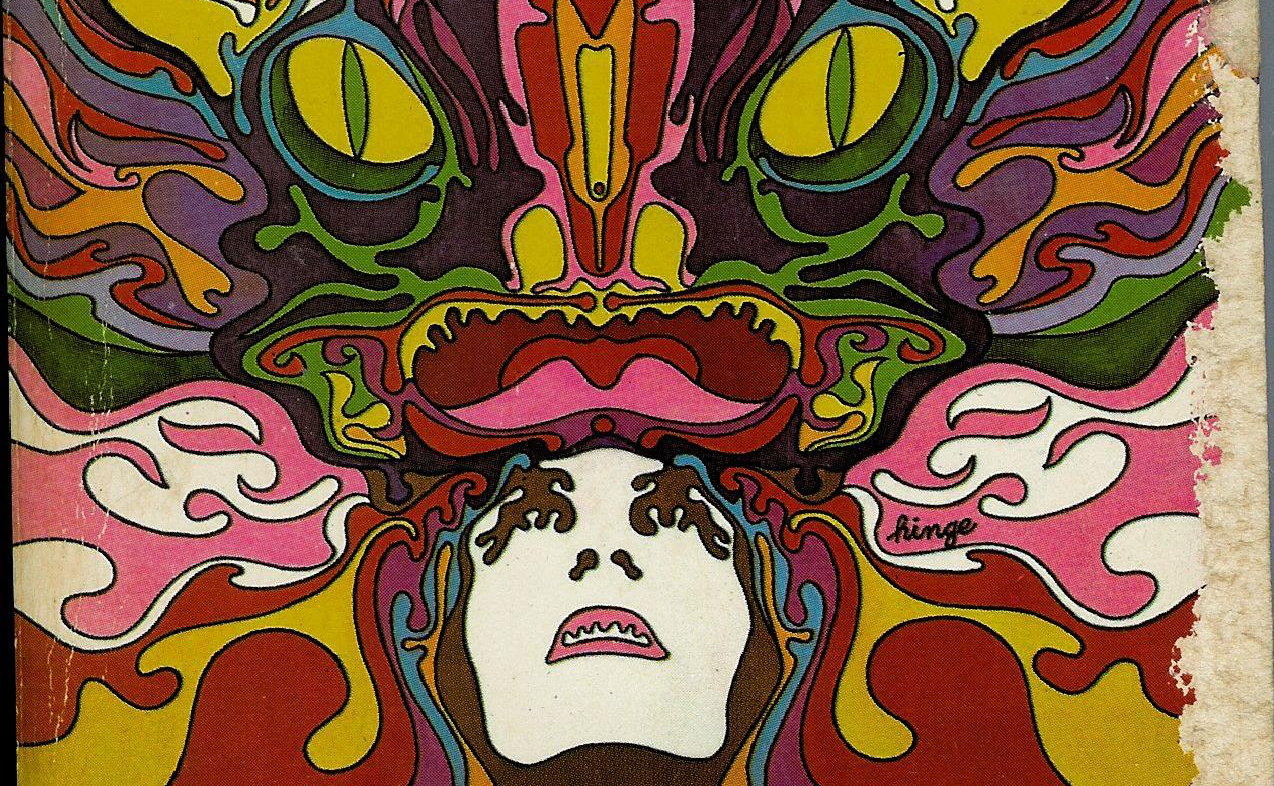


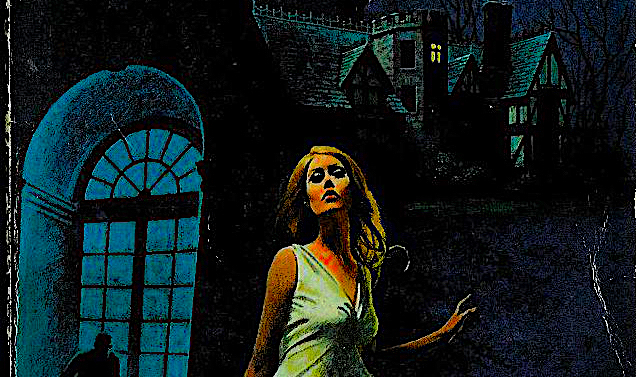
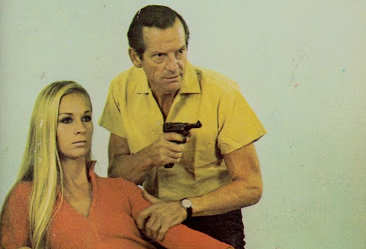
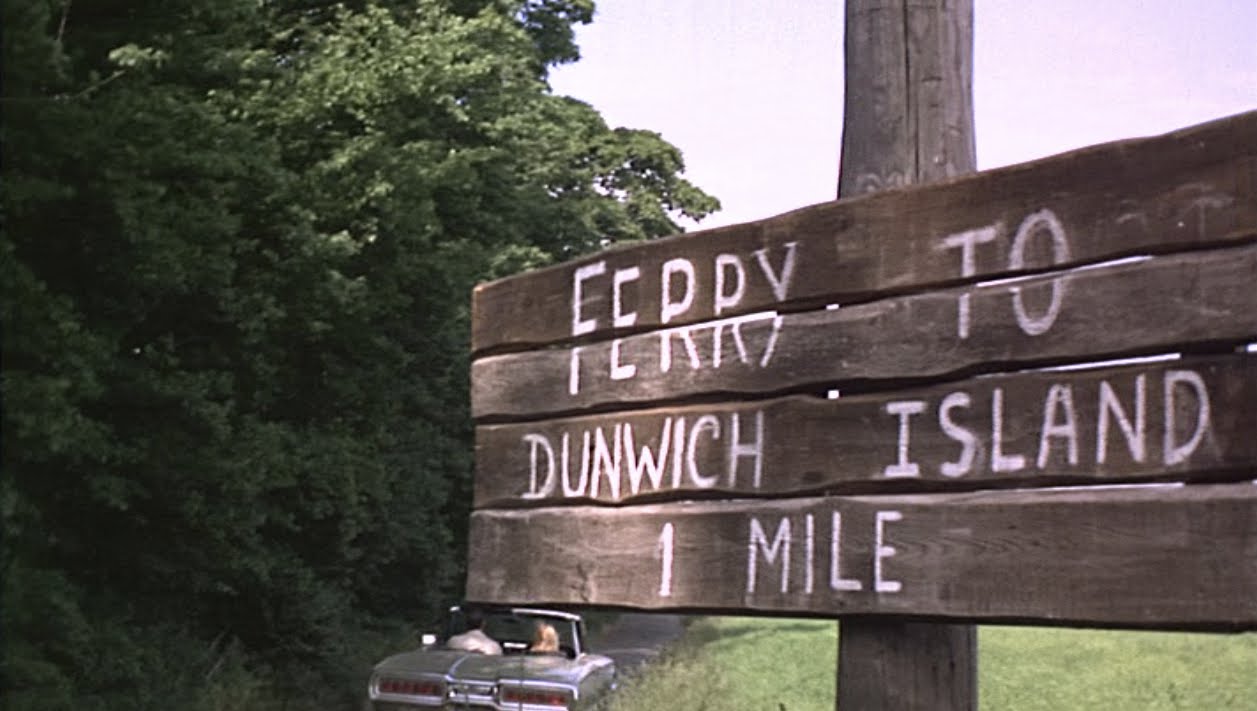
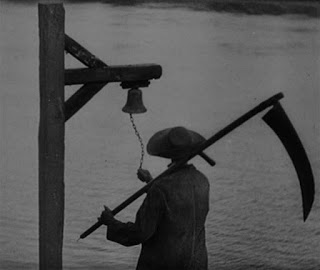
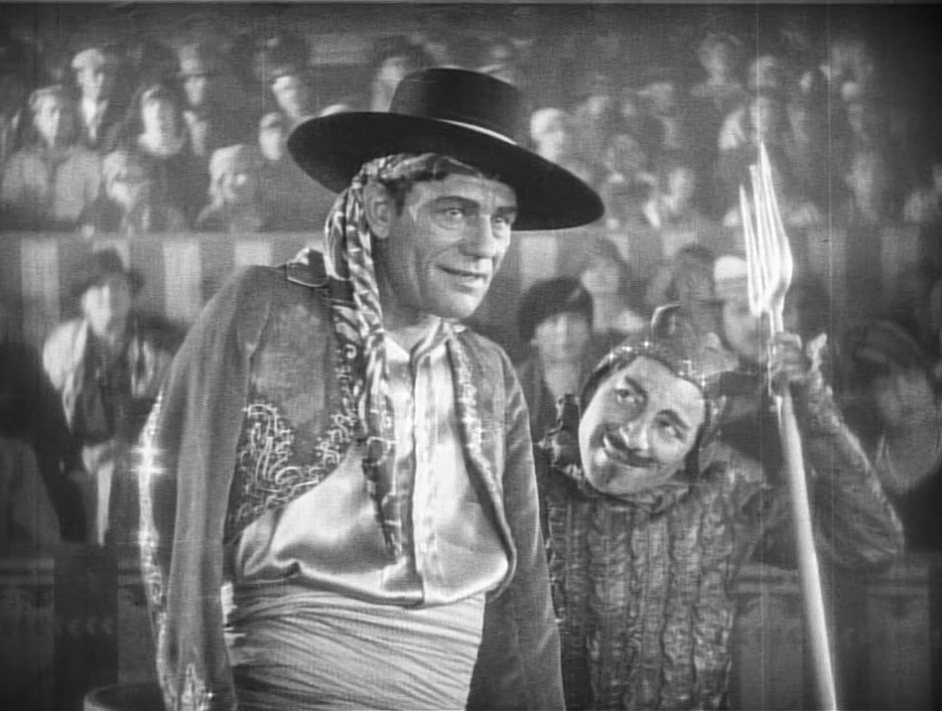
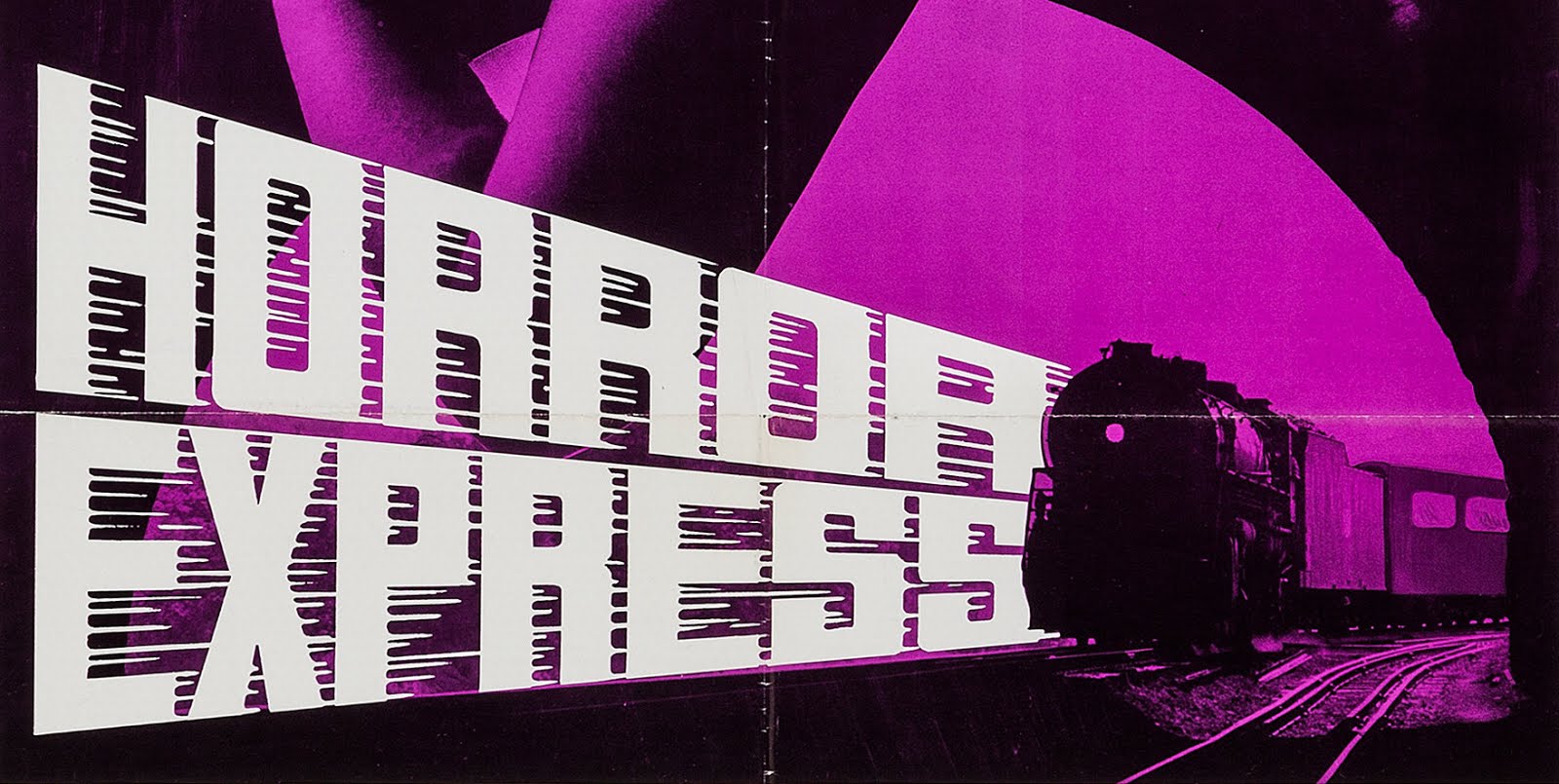
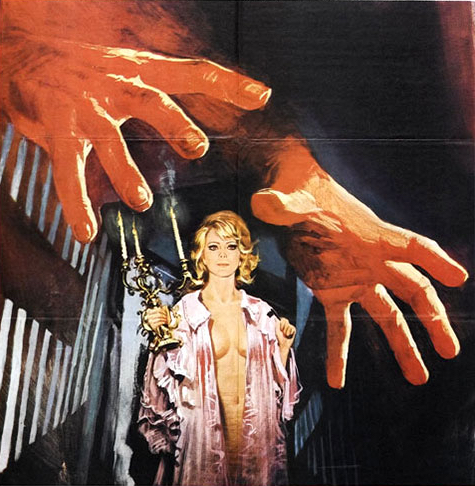

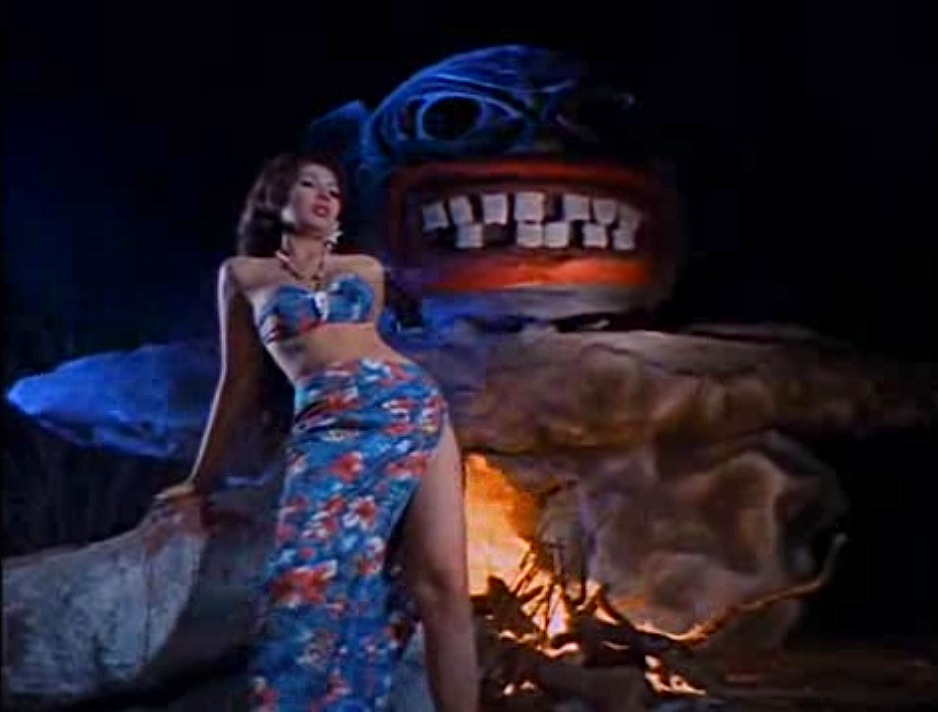





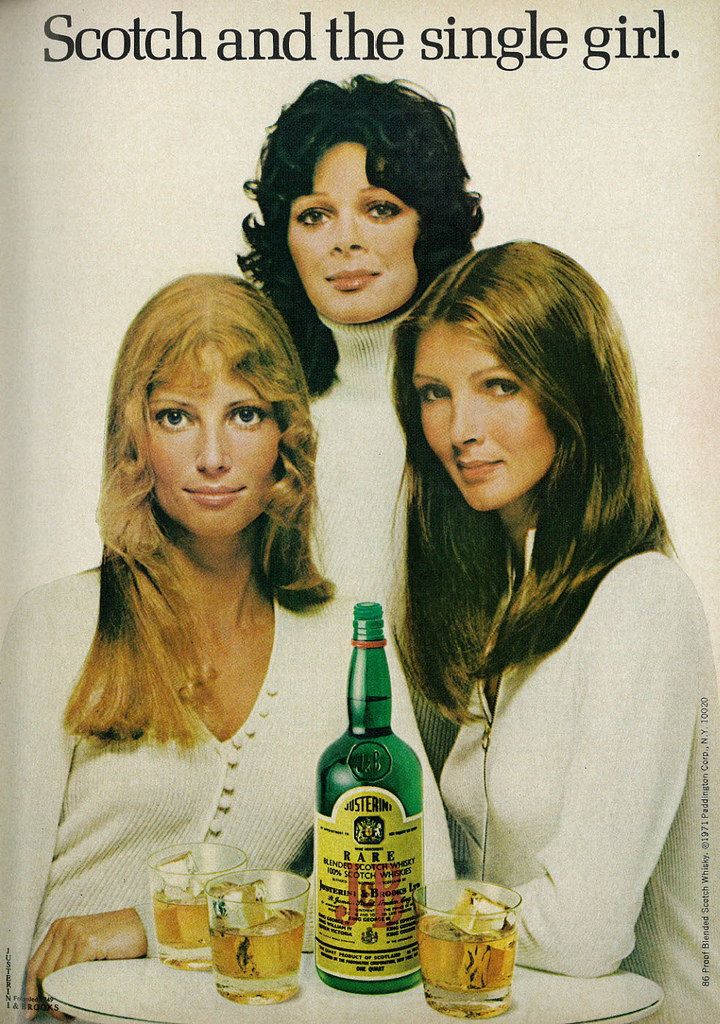


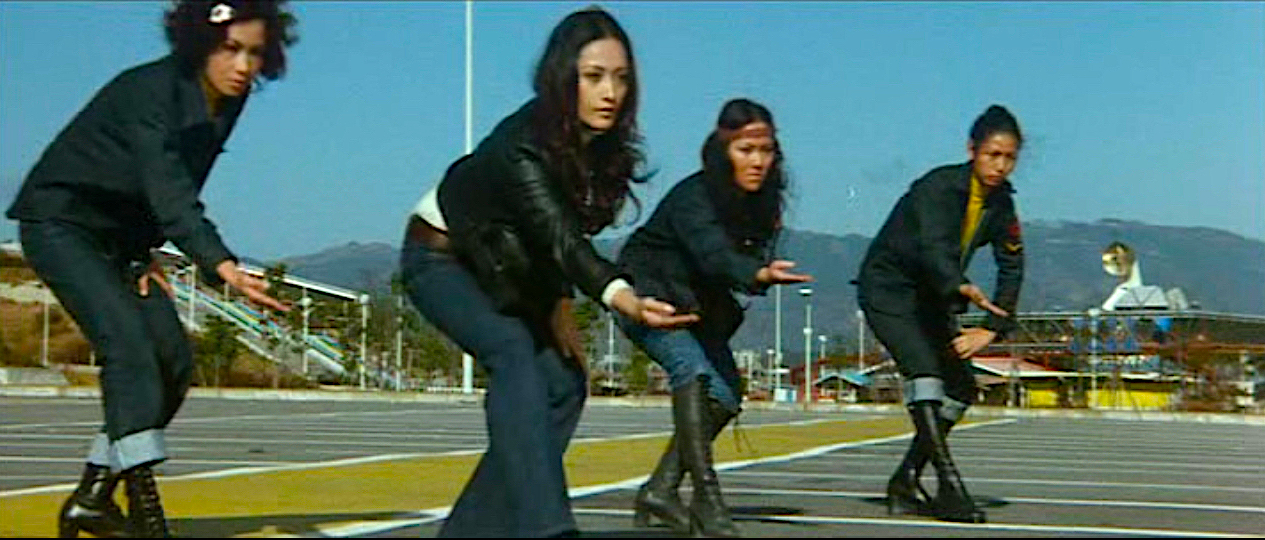


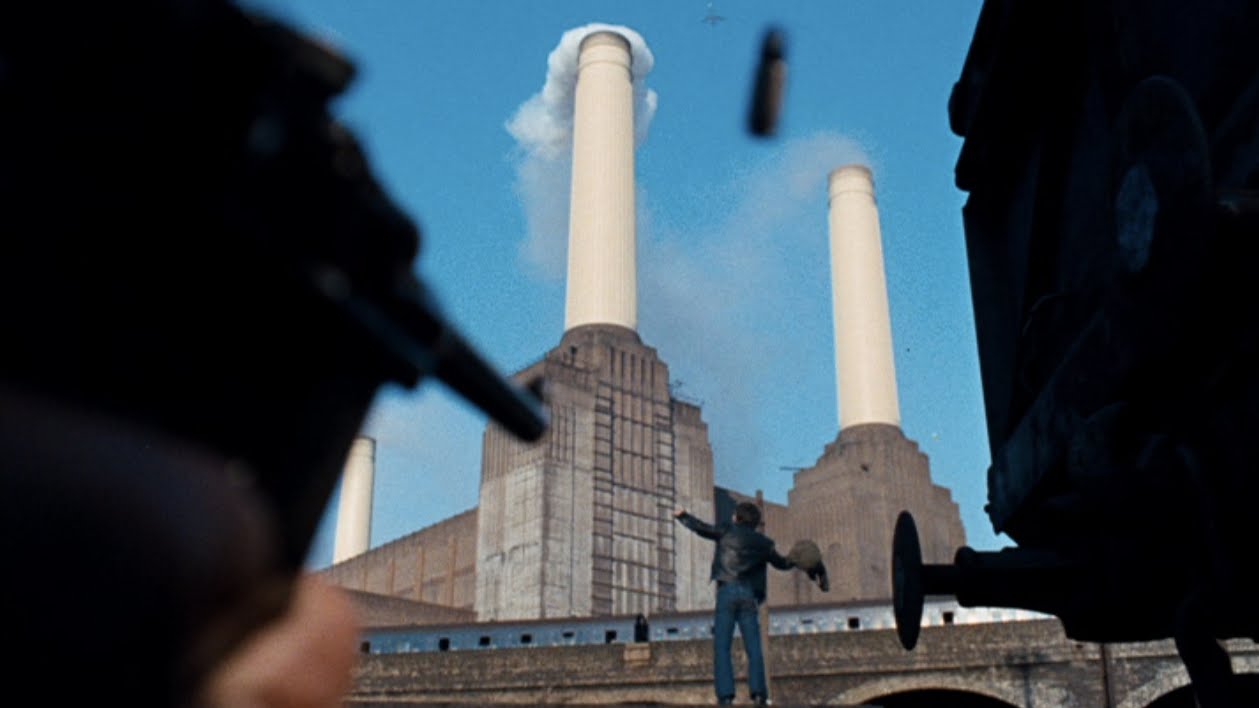
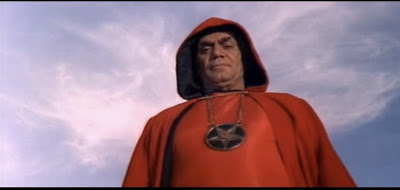








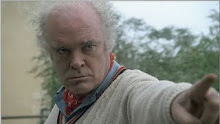
No comments:
Post a Comment